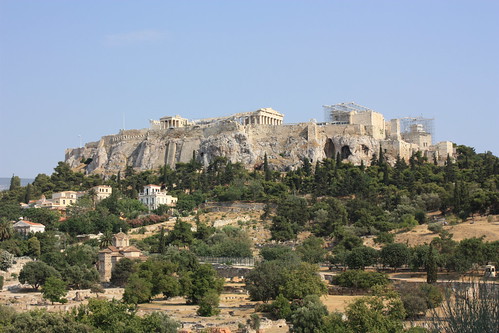
The Apostle’s introduction and approach are most gracious in addressing a crowd of men whose religious celebrations of their gods and goddesses would seem most sinful to every Jew in Athens.
Addressing Athena & the men who idolize her
The Apostle Paul, a Roman citizen who has also been speaking with the Jews of Athens has been brought to the Areopagus in town to address a ruling council of Hellenist leaders and crowds of interested listeners. His already spirit provoked about the overt and godless idolatry he observed [v.16]
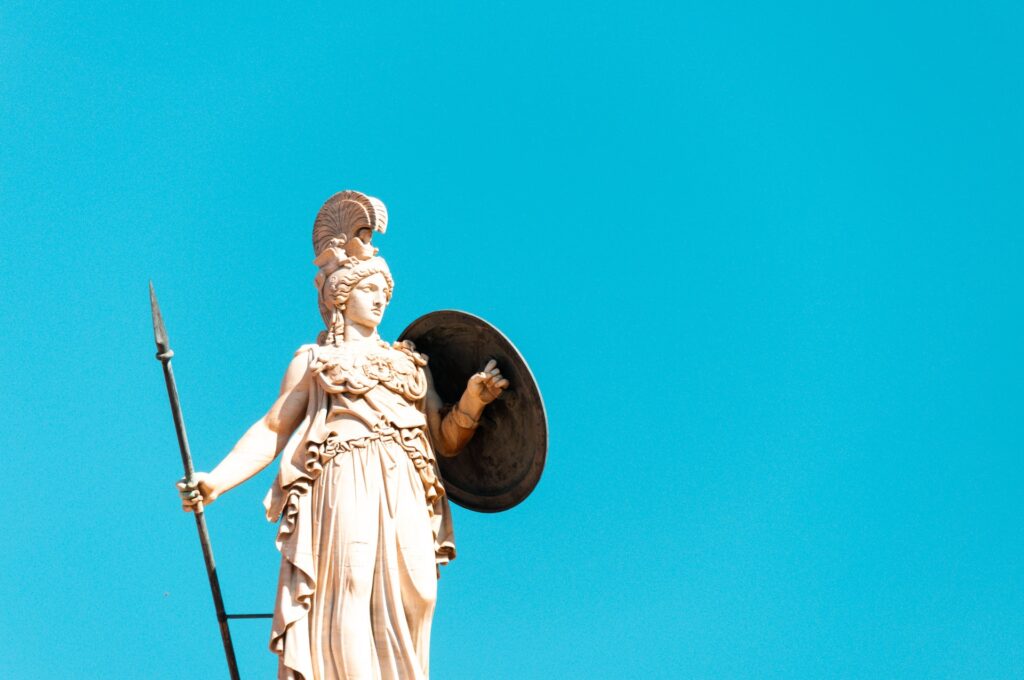
Athena, goddess of the city is prominent to all but she is just one of many revered gods and goddesses of the myths of ancient Greece.
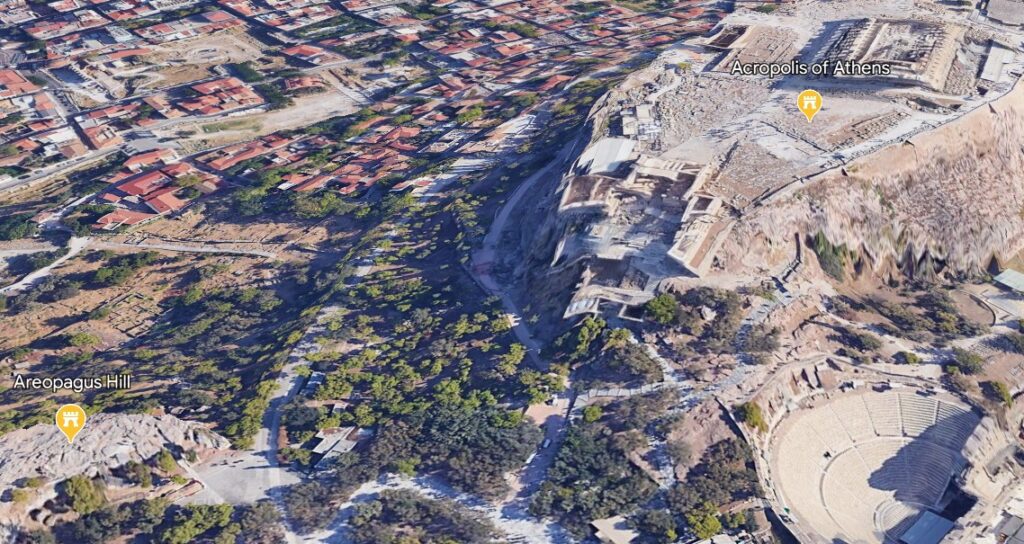
The Areopagus a rocky height in the city of Athens, opposite the western end of the Acropolis toward the west to which these men of the city agora have brought Paul is not only an ancient military outpost but has an idolic connection to Greek mythology as well.
Ἄρειος πάγος – From Ares
(the name of the Greek deity of war)
Recall, however, that Rome has long-established its rule of law and officials in the FREE ROMAN CITY of Athens ACHAIA.
The Hill of Mars, Roman god of War
Allow me to set the mythological stage of the GREEK & ROMAN gods behind the history of Athenian & Roman worship and festivals with music suited to the continuing 'religion' celebrating the passions of men as idols of worship.
This hill belonged to (Ares) Mars and was called Mar’s Hill; so called, because, as the story went, Mars, having slain Halirrhothius, son of Neptune, for the attempted violation of his daughter Alicippe, was tried for the murder here before twelve gods as judges.
Lexicon :: Strong’s G697 – areios pagos – BlueLetterBible.org commentary on Mars Hill
We cannot fully appreciate the dilemma and provocation of the spirit of the Apostle to the gentiles without recognizing as Paul did the seriousness of the sinful culture of idolatry of these men of Athens to whom he now will address himself concerning this ‘strange teaching’ of One God and the resurrection.
So before we proceed with Paul’s speech let’s take a quick look at the mythology behind these compelling legends of gods such as Mars, Neptune, Zeus, Apollo and goddesses such as their patron mother of Athens – Athena.
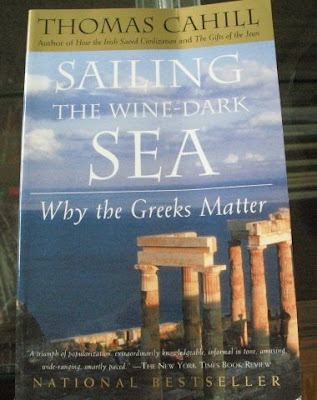
ancient Greek gods & goddesses
(Try to keep score on the who’s doing what with whom as best you can.)
As earlier in Approaching Athena the ruling goddess of Athens I will mostly consult the extensive research of historian Thomas Cahill. – RH
Lord Zeus & other gods
“Zeus, who controlled rain and clouds.. ..was Lord of the Sky and greatest of gods, but not the oldest.” [p.17]

12 Olympians (including Zeus) ruled from ‘heaven’ atop Mount Olympus.
These Olympians had overthrown prior gods called the Titans.
Before that, according to Greek mythology, the TITANS had been formed by FATHER HEAVEN and MOTHER EARTH.
Father Heaven and Mother Earth had emerged from:
(Pay close attention now)
primordial CHAOS whose
2 children: DARKNESS and DEATH
gave birth to LIGHT and LOVE
NIGHT is the mother of DAY

which made possible the appearance of FATHER HEAVEN and MOTHER EARTH.
δεισιδαίμων Scandalous religious worship of gods
The Olympian Zeus was son of the Titan god Chronos. ZEUS, who has taken the lordship of the throne of heaven, is known for ‘perpetually falling in love, wooing and usually raping beautiful women, both mortal and immortal, who would then give birth to gods and demigods… [Sailing the Wine-Dark Sea, p.17]
The goddess Hera is Zeus’ wife! And HERA naturally gets jealous. Plus in an additional soap-opera-esque twist, the goddess Hera is also Zeus’ sister!

IF (unlike Paul) you are unaware of where ATHENA fits in here, this hometown goddess is one of the 12 Olympians which include:
Zeus, Poseidon, Hades, Hera, Demeter, Aphrodite, Athena, Artemis, Apollo, Ares, Hephaestus, Hermes.
Without pursuing these Greek gods and goddesses further (many long forgotten, as Paul & Roman inscriptions will note) their idolic family-tree and extra-worldly adventures come from ancient Greek literature, including Theogony, a poem by Hesiod from ~700 B.C.
The Hellene Pax Romana from the bringer of War
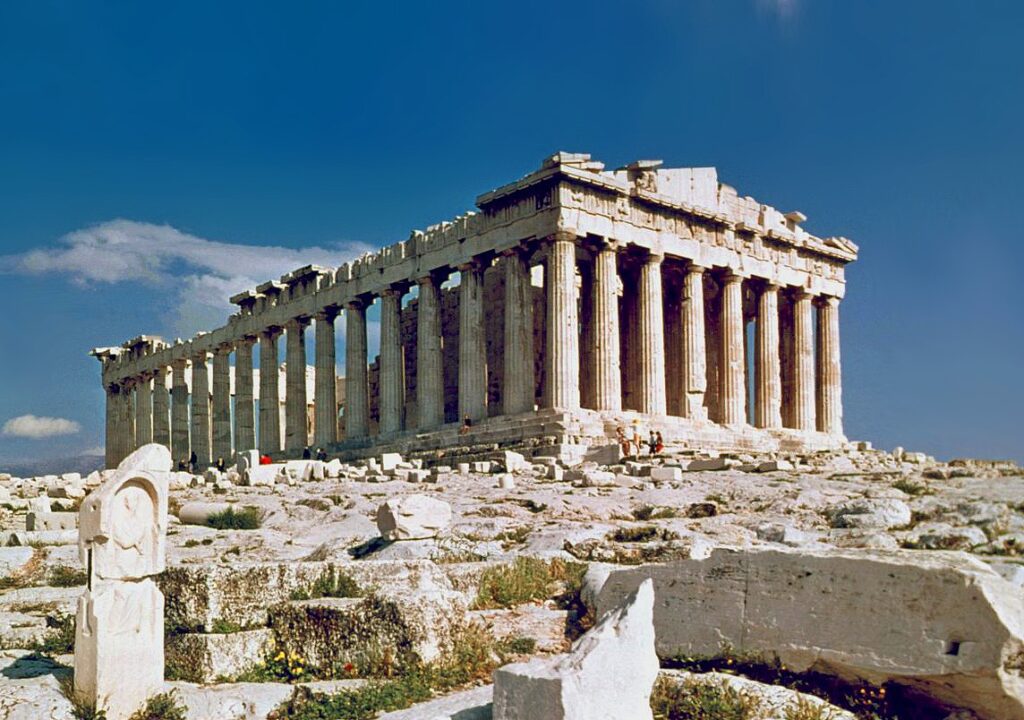
Who are the ROMAN gods of the Roman free city of Athens?
Derived from the Greek words ‘πᾶν’ pan – all, and ‘θεός’ theos – god, pantheon literally means ‘of all gods’.
The British Museum [source for the following list of gods]
King of the gods is Zeus – or his Roman equivalent, Jupiter – who rules over Mount Olympus and is the god of thunder and lightning, as well as law and order.
Hera or Juno.. is the goddess of marriage, childbirth and fertility.
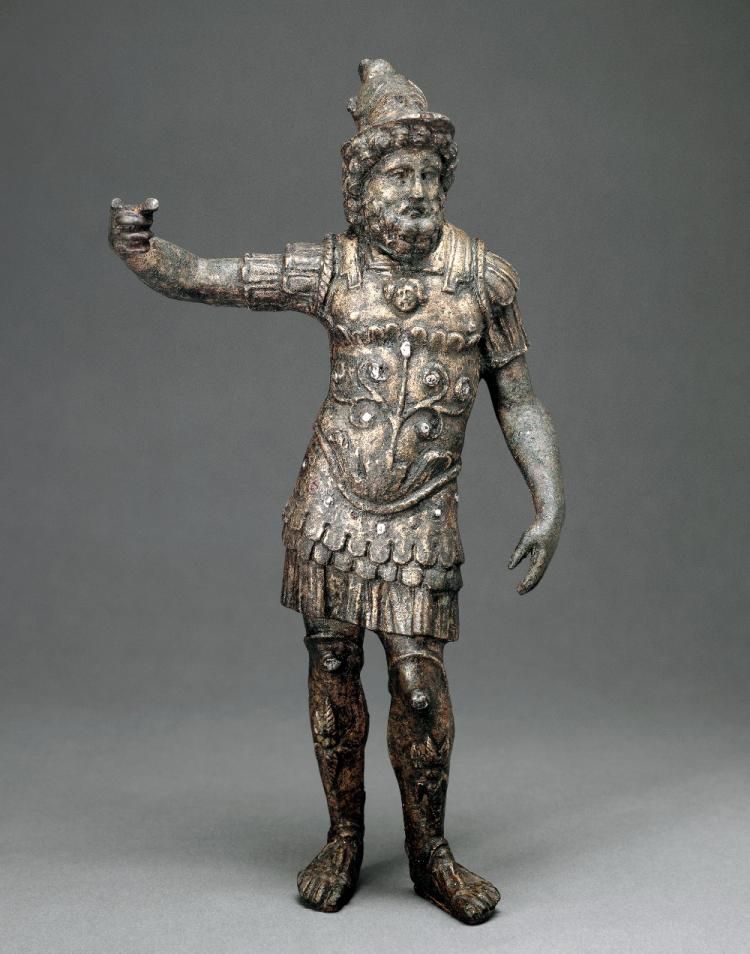
Ares or Mars
This Romano-British statuette shows Mars, the god of war, fully decked out in his characteristic armour, missing the original spear and shield he would once have held.
Athena or Minerva – Ares’ [Mars’] half-sister is the Greek goddess Athena. Goddess of reason, handicraft, wisdom, and war, she is the daughter of Zeus
Aphrodite or Venus [very popular idol of men and women alike in every century]
Goddess of love, sex, and beauty, Aphrodite – or Venus – is said to have emerged from the white foam generated when the Titan Cronos [father of ZEUS] threw the severed testicles of his father, Ouranos, into the sea.
Aphrodite is an ancient Greek goddess associated with love, lust, beauty, pleasure, passion, procreation, and as her syncretized Roman goddess counterpart Venus, desire, sex, fertility, prosperity, and victory.
Hermes or Mercury
The messenger of the gods was Hermes, known as Mercury in ancient Roman religion, and he was also a pastoral god, protecting livestock and travellers.
Do you recall how on their first missionary journey they thought that Paul was Hermes who spoke for Zeus i.e. Barnabas?
YOU could learn much more about these Greek and Roman gods, many long forgotten -- and never gain any more wisdom of the One God who sent men like Paul into all the world with the Gospel of the Savior of sinners and hope of the resurrection, Christ JESUS!
Springtime in Athens
Disclaimer: Although this single illustration of typical events in Roman-ruled Athens is extra-Biblical and may not have taken place specifically during Paul's visit, I provide general descriptions mostly from SAILING THE WINE-DARK SEA to set the cultural stage for Paul's speech with some level of the Apostle's 1st century understanding of his audience. Paul's stop in Athens may have been in A.D. 51, perhaps even in the spring. Claudius, Emperor of Rome, had changed the calendar back in A.D. 46 and by A.D. 43 had conquered much of Europe including Great Britain. - RH
A classical culture that wasn’t what you thought.
The ANCIENT 5th century B.C. cultural of Athens had been that of a ‘democracy’ dependent on slaves. Democracy for ‘all’ was for ‘free’ MEN only, and that only of two basic Greek higher classes, one a ‘high office’ and the others ‘lower’ offices – a sort of competing middle class of free men who directly ruled over the affairs of Athens.
Athenians probably numbered no more than a quarter million, of which as many as 100,000 may have been slaves.. This would leave a citizen population of little more than twenty percent.
‘Why the Greeks Matter’ p.115
The political experiment of Athenian democracy (of its 20% citizenry) would end, of course, with their conquering by Alexander the Great. Later a similar political experiment of a Roman Republic would also fail as conquering heroes of the people made themselves to be Caesars and gods of the people.
Europeans.. are full of spirit but are somewhat lacking in intelligence and skill.. Asians.. though intelligent and skilled.. lack spirit.. The race of the Greeks, however, which occupies the center of the earth.. being both spirited and intelligent.. Thus does this race.. continue to be capable of ruling all humanity.
(Of course no sensible proponent of democracy could today speak of race rather than culture or imply any inequality of those incapable of governing themselves. Let the humanist religion of philosophy bring reason to all religions of humankind with equal participation of all flesh in the rituals of all gods celebrated together in the pax of humanity. But this of course is a 21st c. religious take on ancient wise ways of 'classical' philosophers such as the excerpt quoted here from Cahill.) - RHexcerpt [The Politician and the Playwright p. 129 – How to Rule] from ARISTOTLE
Picture the Classical Greek citizens of Athens (and their slaves)or Hellenist Athenians in built back better ruins of their past with a Roman citizen Paul brought to their curious attention in A.D. 51:
“The continual buzz of conversation, the orotund sound of the orators, the shrill shouts from the symposia–this steady drumbeat of opinion, controversary, and conflict could everywhere be heard. The agora [marketplace].. was an everyday marketplace of ideas..
The word the Athenians used for their Assembly was Ekklēsia, the same word used in the New Testament for Church..”
Thomas Cahill – Sailing the Wine-Dark Sea p.118
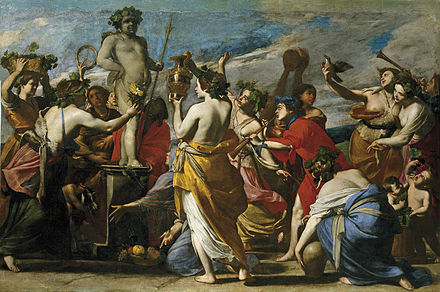
Hellenist worship
At the springtime Dionysia, the Athenian festival in honor of Dionysus, three days.. began with a solemn religious procession of leading citizens, distinguished visitors, and all the choruses.. led by officials carrying.. sculpture of erect penises, symbols of the god, to his temple…
Why the Greeks Matter, Thomas Cahill pp. 129-130
Into the this idolatry walks a Roman citizen, Paul, who is invited to address the assembly of leading men of Athens, to whom the Apostle begins his logical argument with exceeding grace.
the UNKNOWN GOD
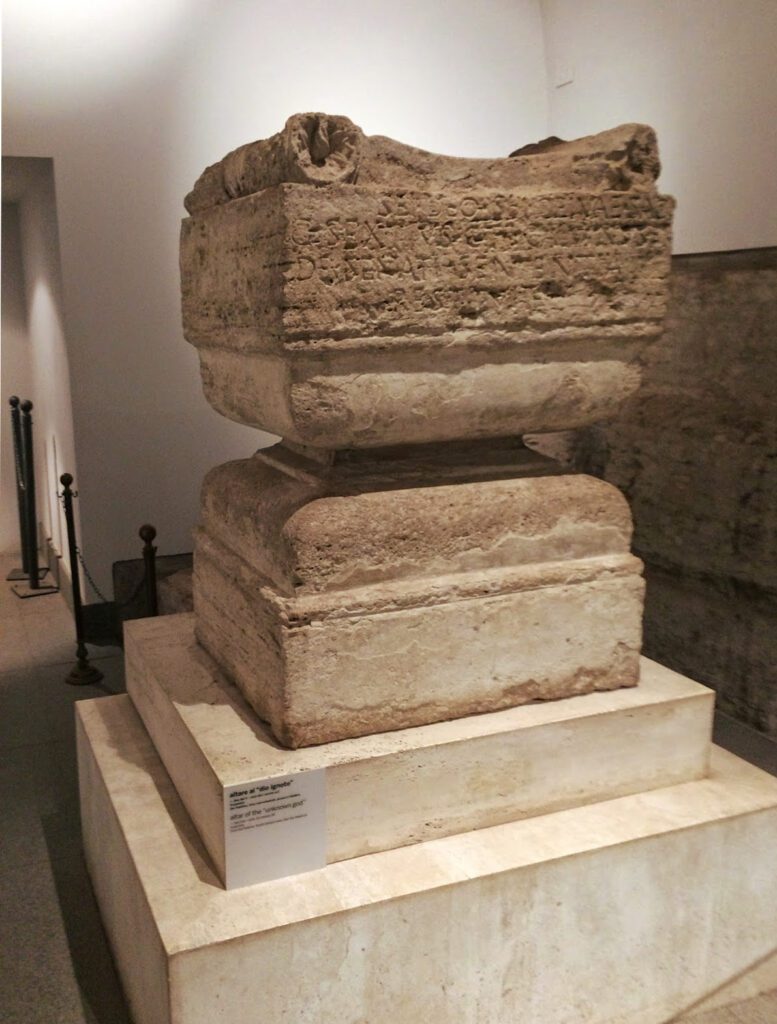
Acts 17 – Paul Addresses the Areopagus
23 For as I passed along and observed the objects of your worship, I found also an altar with this inscription: ‘To the unknown god.’
What therefore you worship as unknown, this I proclaim to you. The God who made the world and everything in it, being Lord of heaven and earth, does not live in temples made by man, nor is he served by human hands, as though he needed anything, since he himself gives to all mankind life and breath and everything…
NEXT: the Logic of Paul’s Theology
To be continued…
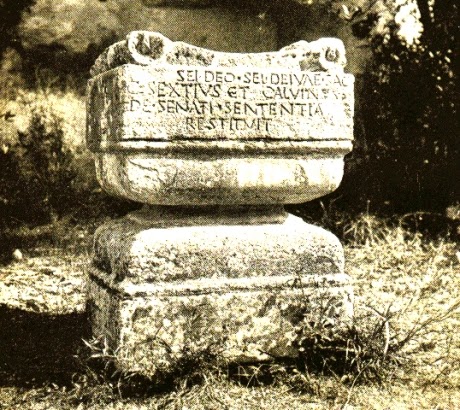

Leave a Reply